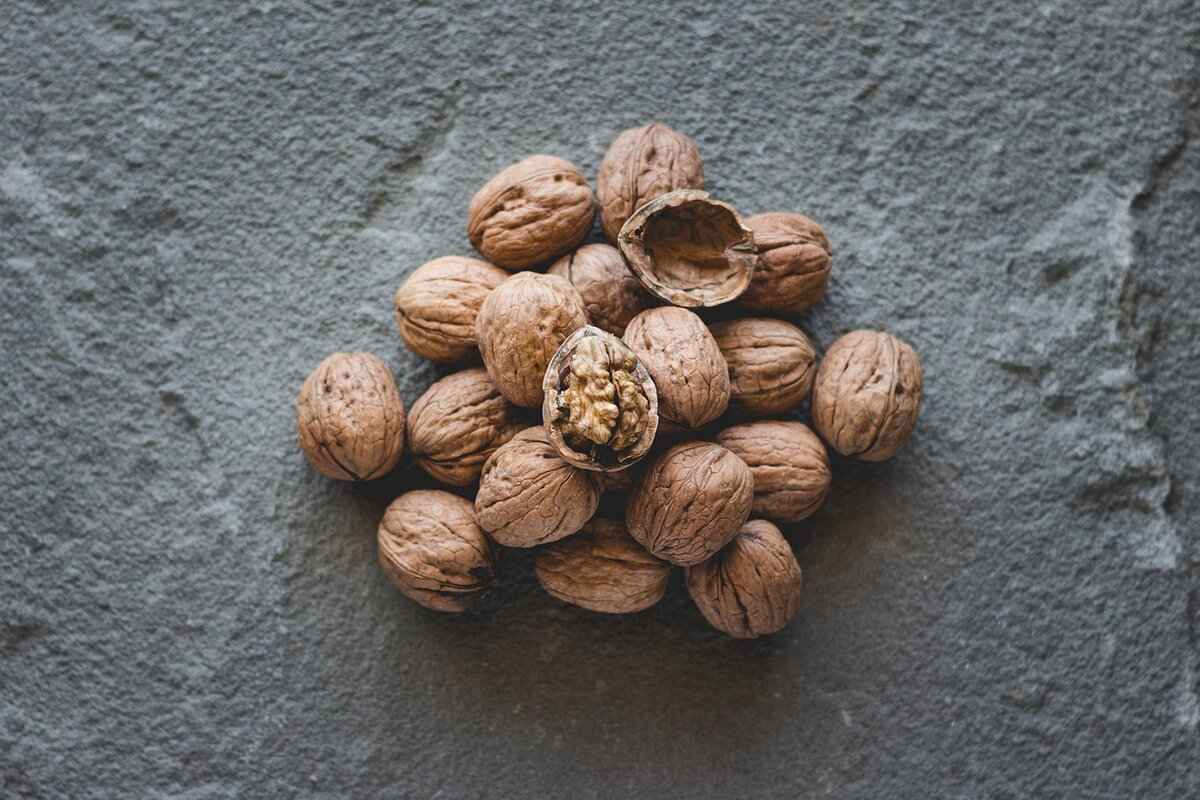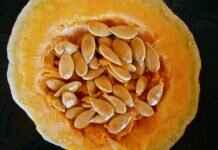Chia seeds have gained immense popularity in recent years, and for good reason. These tiny, nutrient-packed seeds are not only versatile in the kitchen but also boast an impressive array of health benefits that make them a valuable addition to any diet. In this article, we will explore the nutritional profile of chia seeds, their various uses, and the potential health impacts they can have on your body.
Chia seeds come from the Salvia hispanica plant, native to Mexico and Guatemala. These tiny black or white seeds are rich in essential nutrients, including omega-3 fatty acids, fiber, protein, and various vitamins and minerals. Just a small serving can provide a significant boost to your daily nutrient intake.
Often hailed as a superfood, chia seeds are packed with antioxidants, vitamins, and minerals. Their high nutritional value supports overall well-being and can help combat chronic diseases, making them an excellent choice for health-conscious individuals.
One of the standout benefits of chia seeds is their high fiber content. This dietary fiber plays a crucial role in promoting healthy digestion. Chia seeds can absorb up to 12 times their weight in water, which helps to maintain bowel regularity and prevent constipation.
The fiber found in chia seeds nourishes the beneficial bacteria in your gut, enhancing digestive function and improving gut health. A healthy gut microbiome is essential for overall health, as it can influence everything from digestion to immune function.
Chia seeds can be a valuable ally in weight management. Their high fiber content promotes a feeling of fullness, which can help reduce overall calorie intake. Including chia seeds in your meals may assist in achieving and maintaining a healthy weight.
Rich in omega-3 fatty acids, chia seeds can contribute to heart health by reducing inflammation and lowering cholesterol levels. Regular consumption may decrease the risk of cardiovascular diseases, making them a heart-healthy addition to your diet.
Chia seeds are an excellent plant-based source of alpha-linolenic acid (ALA), a type of omega-3 fatty acid. ALA supports heart health and may improve overall cardiovascular function, making chia seeds a valuable addition to vegetarian and vegan diets.
Chia seeds can help stabilize blood sugar levels due to their high fiber content. The soluble fiber in chia seeds slows down the absorption of sugar into the bloodstream, which can aid in diabetes management and prevent spikes in blood sugar levels.
Incorporating chia seeds into your diet is easy and versatile. They can be added to smoothies, oatmeal, yogurt, and baked goods. Their mild flavor makes them a great addition to both sweet and savory dishes.
- Chia Pudding: Combine chia seeds with your choice of milk and sweetener, let it sit overnight, and enjoy a nutritious breakfast.
- Smoothies: Blend chia seeds into your favorite smoothie for an added nutrient boost.
- Energy Bars: Incorporate chia seeds into homemade energy bars for a healthy snack.
A typical serving size of chia seeds is about 1-2 tablespoons per day. This amount provides a sufficient dose of nutrients without overwhelming your diet.
While chia seeds are generally safe for most people, some may experience digestive discomfort. It’s essential to consume them with adequate water to prevent any adverse effects. If you have any concerns, consult with a healthcare provider before adding them to your diet.
Individuals with certain allergies or those on specific medications should consult a healthcare provider before incorporating chia seeds into their diet to avoid potential interactions or side effects.
Though rare, chia seed allergies can occur. Symptoms may include itching, hives, or gastrointestinal discomfort. It’s crucial to be aware of any allergies to ensure safe consumption.

What Are Chia Seeds?
Chia seeds are small, oval-shaped seeds that originate from the Salvia hispanica plant, which is native to Central America. These seeds have gained immense popularity in recent years due to their remarkable nutrient profile and health benefits. Packed with essential fatty acids, fiber, and various vitamins and minerals, chia seeds are often regarded as a superfood that can easily be incorporated into a balanced diet.
Chia seeds are incredibly nutrient-dense, meaning they provide a high amount of nutrients relative to their calorie content. A typical serving of just two tablespoons (about 28 grams) contains:
- 5 grams of protein
- 11 grams of fiber
- 18% of the recommended daily intake of calcium
- 27% of the recommended daily intake of magnesium
- 30% of the recommended daily intake of phosphorus
- Rich in antioxidants
Chia seeds are often labeled a superfood due to their impressive nutritional profile. They are a fantastic source of omega-3 fatty acids, particularly alpha-linolenic acid (ALA), which has been linked to numerous health benefits, including reduced inflammation and improved heart health. Furthermore, their high antioxidant content helps combat oxidative stress, making them beneficial for overall health.
One of the standout features of chia seeds is their high fiber content. With approximately 11 grams of fiber per serving, chia seeds can significantly improve digestive health. The soluble fiber in chia seeds absorbs water and expands in the stomach, promoting a feeling of fullness and aiding in regular bowel movements.
Chia seeds can be a valuable ally in weight management. Their ability to absorb water and swell in the stomach helps create a feeling of satiety, which can reduce overall calorie intake. Additionally, the fiber content aids in digestion, which is essential for maintaining a healthy weight.
Rich in omega-3 fatty acids, chia seeds can contribute to heart health by lowering cholesterol levels and reducing inflammation. Regular consumption of chia seeds may help decrease the risk of cardiovascular diseases, making them an excellent addition to a heart-healthy diet.
Incorporating chia seeds into your diet is simple and versatile. They can be added to:
- Smoothies
- Oatmeal
- Baked goods
- Yogurt
- Salads
Chia seeds can also be used to make chia pudding, a popular and nutritious breakfast option. Simply mix chia seeds with your choice of milk or yogurt, let it sit overnight, and enjoy a delicious and healthy meal.
While chia seeds are generally safe for most individuals, some may experience digestive discomfort if consumed in large quantities. It is crucial to drink plenty of water when consuming chia seeds to avoid potential side effects.
Those with certain allergies or those on specific medications should consult a healthcare provider before adding chia seeds to their diet. Individuals with a known allergy to sesame seeds may also be at risk for a chia seed allergy.
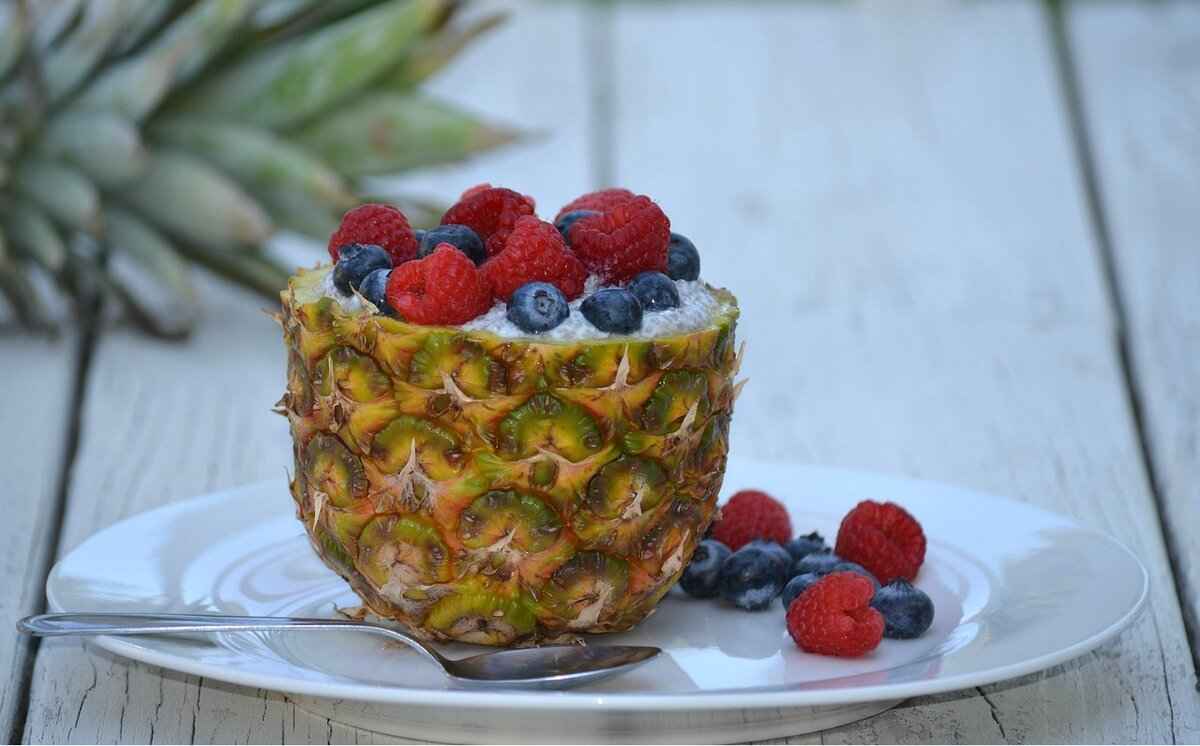
Why Are Chia Seeds Considered a Superfood?
Chia seeds have gained immense popularity in recent years, often being hailed as a superfood. This designation stems from their exceptional nutritional profile and the multitude of health benefits they offer. In this section, we will explore the reasons why chia seeds are considered a superfood and how they can enhance your overall health.
Chia seeds are remarkably rich in essential nutrients. They contain:
- Omega-3 fatty acids: These healthy fats are crucial for heart health and brain function.
- Dietary fiber: Aiding digestion and promoting a feeling of fullness.
- Proteins: Important for muscle repair and growth.
- Vitamins and minerals: Including calcium, magnesium, and phosphorus, which support bone health.
- Antioxidants: Protecting the body from oxidative stress and inflammation.
The high antioxidant content in chia seeds helps combat free radicals in the body. Free radicals are unstable molecules that can cause cell damage, leading to chronic diseases. By incorporating chia seeds into your diet, you can enhance your body’s defense against oxidative stress.
Chia seeds are a fantastic source of alpha-linolenic acid (ALA), a type of omega-3 fatty acid known for its heart-protective properties. Studies suggest that ALA can help lower cholesterol levels and reduce inflammation, significantly decreasing the risk of heart disease. Regular consumption of chia seeds may lead to improved cardiovascular health.
One of the remarkable benefits of chia seeds is their ability to assist in weight management. The high fiber content in chia seeds absorbs water and expands in the stomach, promoting a feeling of fullness and reducing the urge to snack. This can lead to lower overall calorie intake, making chia seeds a valuable addition to a weight loss diet.
Chia seeds are an excellent source of soluble fiber, which plays a crucial role in maintaining healthy digestion. The fiber in chia seeds helps regulate bowel movements and can prevent constipation. Additionally, it fosters the growth of beneficial gut bacteria, promoting a healthy microbiome.
For individuals managing diabetes or blood sugar levels, chia seeds can be particularly beneficial. Their high fiber content slows the absorption of sugar into the bloodstream, helping to stabilize blood sugar levels. This can be especially advantageous for those looking to manage their diabetes effectively.
Incorporating chia seeds into your diet is simple and versatile. Here are some easy ways to enjoy their health benefits:
- Add them to smoothies for a nutrient boost.
- Mix them into yogurt or oatmeal.
- Use them in baking recipes, such as muffins or bread.
- Create chia pudding by soaking them in milk or a dairy-free alternative.
In summary, the nutritional benefits of chia seeds make them a valuable addition to any diet. Their rich content of omega-3 fatty acids, fiber, and antioxidants supports various aspects of health, from heart health to weight management. By incorporating chia seeds into your daily meals, you can harness their superfood status and enjoy their numerous health benefits.

How Do Chia Seeds Benefit Digestive Health?
Chia seeds have gained popularity in recent years, not only for their versatility in culinary applications but also for their impressive health benefits. One of the most significant advantages of incorporating chia seeds into your diet is their positive impact on digestive health. This article explores how chia seeds can promote healthy digestion, their fiber content, and practical tips for including them in your meals.
Chia seeds are an excellent source of diets rich in fiber, which plays a crucial role in maintaining digestive health. The soluble fiber in chia seeds can absorb water, forming a gel-like substance that aids in maintaining bowel regularity. This unique property helps to soften stools, making them easier to pass and effectively preventing constipation.
The fiber content in chia seeds not only supports bowel regularity but also promotes the growth of beneficial gut bacteria. These probiotics are vital for a healthy digestive system, as they help break down food and absorb nutrients efficiently. Furthermore, a fiber-rich diet can help reduce the risk of digestive disorders such as irritable bowel syndrome (IBS) and diverticulitis.
In addition to enhancing digestive health, chia seeds can also support weight management. Their high fiber content promotes a feeling of fullness, which can help reduce overall calorie intake. By incorporating chia seeds into meals, you can enjoy greater satiety, making it easier to manage portion sizes and maintain a healthy weight.
Chia seeds are incredibly versatile and can be easily added to various dishes. Here are some practical ways to incorporate them into your daily meals:
- Add chia seeds to your morning smoothie for an extra boost of nutrition.
- Mix them into yogurt or oatmeal for added texture and fiber.
- Create a delicious chia pudding by soaking the seeds in almond milk or coconut milk overnight.
- Sprinkle chia seeds on salads or soups for a nutritious crunch.
Here are a few simple recipes to help you enjoy the health benefits of chia seeds:
- Chia Pudding: Combine 1/4 cup of chia seeds with 1 cup of your favorite milk and sweeten to taste. Let it sit in the refrigerator overnight and enjoy it in the morning.
- Chia Smoothie: Blend 1 tablespoon of chia seeds with a banana, a cup of spinach, and your choice of milk for a nutritious breakfast.
- Chia Energy Bars: Mix chia seeds with oats, honey, and your choice of nuts, then press into a pan and refrigerate until firm.
A typical serving size of chia seeds is about 1-2 tablespoons per day. This amount provides a sufficient dose of nutrients without overwhelming your diet. It’s essential to drink plenty of water when consuming chia seeds to help them expand and provide their full digestive benefits.
While chia seeds are generally safe for most people, some may experience digestive discomfort if consumed in large quantities. It’s crucial to start with small amounts and gradually increase your intake while ensuring adequate hydration.
Individuals with certain allergies or those on specific medications should consult a healthcare provider before adding chia seeds to their diet. This precaution helps to avoid any potential interactions or side effects.
In summary, chia seeds offer numerous benefits for digestive health, making them a valuable addition to any diet. Their high fiber content not only promotes healthy digestion but also supports overall wellness. By incorporating chia seeds into your meals, you can enjoy their nutritional benefits while enhancing your digestive health.
What Is the Role of Fiber in Chia Seeds?
Chia seeds have gained significant attention in the health and wellness community, particularly for their impressive fiber content. This nutrient plays a vital role in promoting digestive health and overall well-being. Understanding the specific benefits of the fiber found in chia seeds can help you appreciate why they are considered a superfood.
The fiber in chia seeds is primarily soluble fiber, which forms a gel-like substance when mixed with water. This property is crucial for supporting gut health as it aids in the growth of beneficial bacteria in the gut microbiome. These beneficial bacteria are essential for digestive function and can enhance nutrient absorption.
- Improved Digestion: A healthy gut microbiome helps break down food more efficiently, reducing the risk of digestive issues such as bloating and constipation.
- Enhanced Immune Function: A balanced gut microbiome contributes to a stronger immune system, helping to fend off illnesses.
- Mood Regulation: Emerging research suggests a link between gut health and mental well-being, indicating that a healthy gut can positively impact mood and cognitive function.
Chia seeds can absorb up to 12 times their weight in water, which can help maintain bowel regularity. When consumed, the gel-like consistency of the seeds can help to bulk up stool, making it easier to pass. This is especially beneficial for individuals who struggle with constipation or irregular bowel movements.
Regular consumption of chia seeds may play a role in preventing digestive disorders. By promoting the growth of beneficial bacteria and improving digestion, chia seeds can help mitigate the risk of conditions such as irritable bowel syndrome (IBS) and diverticulitis.
Just two tablespoons of chia seeds contain approximately 10 grams of fiber, which is about one-third of the daily recommended intake for adults. This high fiber content makes them an excellent addition to a balanced diet, particularly for those looking to increase their fiber intake.
Incorporating chia seeds into your meals is simple and versatile. Here are some effective ways to enjoy their fiber benefits:
- Add them to smoothies for a nutritious boost.
- Mix chia seeds into yogurt or oatmeal for added texture and fiber.
- Use them as an egg substitute in baking by mixing with water.
- Sprinkle them on salads or soups for a crunchy topping.
While chia seeds are generally safe for most individuals, it’s essential to consume them with adequate hydration. Due to their high fiber content, insufficient water intake can lead to digestive discomfort. Start with small amounts and gradually increase your intake as your body adjusts.
In summary, the fiber found in chia seeds plays a significant role in promoting gut health by fostering beneficial bacteria and enhancing digestive function. By including chia seeds in your daily diet, you can enjoy their numerous health benefits and support your overall wellness.
Can Chia Seeds Help with Weight Management?
Chia seeds have gained popularity in recent years as a powerful addition to a healthy diet, particularly for those looking to manage their weight effectively. With their impressive nutritional profile, these tiny seeds are not just a trendy health food but a valuable ally in weight management.
The secret to chia seeds’ effectiveness in weight management lies primarily in their high fiber content. Each serving of chia seeds contains approximately 10 grams of fiber, which is essential for promoting a feeling of fullness or satiety. When consumed, chia seeds absorb water and expand in the stomach, creating a gel-like consistency that helps to curb hunger and reduce the desire for snacking between meals.
Studies have shown that high-fiber foods like chia seeds can significantly influence appetite regulation. The combination of fiber and protein in chia seeds can lead to reduced calorie intake throughout the day. When people feel full, they are less likely to consume excess calories, which is crucial for anyone trying to lose or maintain weight.
- Nutrient-Rich: Chia seeds are packed with essential nutrients, including omega-3 fatty acids, antioxidants, and various vitamins and minerals.
- Low in Calories: Despite their nutrient density, chia seeds are relatively low in calories, making them an excellent choice for weight-conscious individuals.
- Versatile Ingredient: Chia seeds can be easily incorporated into smoothies, yogurt, or baked goods, providing a convenient way to enhance meals.
Incorporating chia seeds into your diet can be done in numerous ways. Here are a few practical suggestions:
- Chia Pudding: Mix chia seeds with your choice of milk or yogurt and let them sit overnight to create a delicious pudding.
- Smoothies: Add a tablespoon of chia seeds to your morning smoothie for an extra boost of fiber and nutrients.
- Baking: Substitute a portion of flour in your baking recipes with chia seeds for added nutrition.
While chia seeds are generally safe for most individuals, it is essential to consume them with adequate water to prevent digestive discomfort. Starting with a small amount and gradually increasing your intake can help your body adjust to the added fiber.
Individuals with specific medical conditions or those taking certain medications should consult a healthcare provider before adding chia seeds to their diet. This is particularly important for people who have a history of digestive issues or allergies.
In conclusion, chia seeds are a remarkable addition to any diet, especially for those aiming for effective weight management. Their high fiber content, combined with their nutrient-dense profile, makes them a valuable tool in achieving and maintaining a healthy weight.
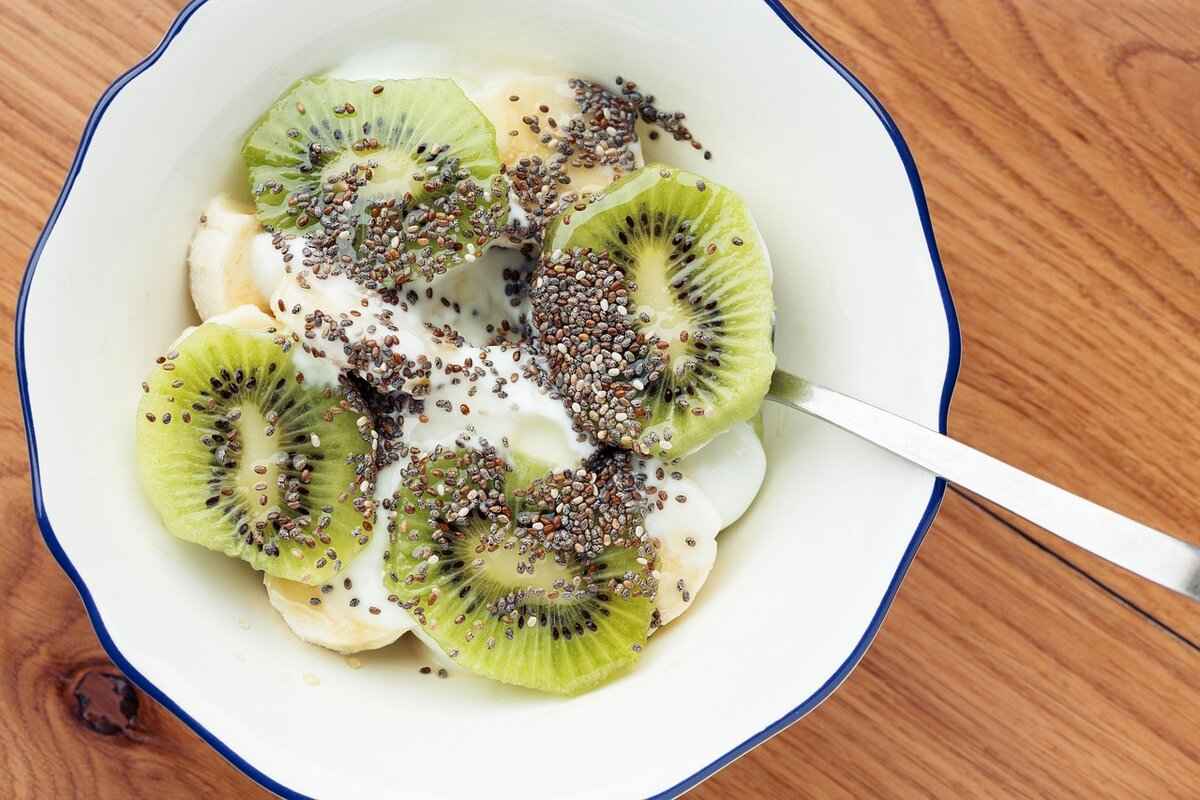
Are Chia Seeds Beneficial for Heart Health?
Chia seeds, derived from the Salvia hispanica plant, are increasingly recognized for their numerous health benefits, particularly regarding heart health. These tiny seeds are rich in omega-3 fatty acids, which are essential for maintaining a healthy cardiovascular system. In this section, we will explore how chia seeds contribute to heart health and why they should be a staple in your diet.
Chia seeds are an excellent plant-based source of alpha-linolenic acid (ALA), a type of omega-3 fatty acid. Research indicates that ALA can help reduce inflammation, a key factor in the development of heart disease. By lowering inflammation levels, chia seeds may help protect against various cardiovascular issues.
Another significant benefit of chia seeds is their ability to lower cholesterol levels. Studies have shown that incorporating chia seeds into your diet can lead to a decrease in LDL (bad) cholesterol and an increase in HDL (good) cholesterol. This favorable cholesterol profile is crucial for reducing the risk of heart disease and maintaining overall cardiovascular health.
High blood pressure is a major risk factor for heart disease. The fiber and omega-3 fatty acids found in chia seeds can contribute to healthy blood pressure levels. Fiber aids in maintaining stable blood sugar levels, which can indirectly influence blood pressure. Additionally, the anti-inflammatory properties of omega-3s can further support vascular health.
Beyond cholesterol and blood pressure, chia seeds play a role in enhancing overall cardiovascular function. Their high antioxidant content helps combat oxidative stress, which can damage blood vessels and lead to heart disease. By incorporating chia seeds into your diet, you can provide your body with the necessary nutrients to support a healthy heart.
To reap the heart health benefits of chia seeds, it is recommended to consume about 1-2 tablespoons per day. This amount provides sufficient omega-3 fatty acids and fiber without overwhelming your diet. You can easily add chia seeds to smoothies, yogurt, or oatmeal for a nutritious boost.
While chia seeds are generally safe for most people, it’s essential to consume them with adequate water to prevent digestive discomfort. Individuals with certain allergies or those on specific medications should consult a healthcare provider before adding chia seeds to their diet.
Incorporating chia seeds into your daily diet can provide various benefits, particularly for heart health. Their rich omega-3 fatty acid content, ability to lower cholesterol levels, and support for healthy blood pressure make them an excellent choice for anyone looking to improve their cardiovascular health. With their versatility, chia seeds can easily fit into various meals, making them a practical addition to a heart-healthy diet.
What Are the Omega-3 Fatty Acids in Chia Seeds?
Chia seeds, derived from the Salvia hispanica plant, have gained immense popularity as a superfood, particularly for their rich content of omega-3 fatty acids. Among these, alpha-linolenic acid (ALA) stands out as a key player in promoting heart health. This article will explore the various benefits of ALA found in chia seeds and its significance for cardiovascular function.
Omega-3 fatty acids are essential fats that the body cannot produce on its own. This means they must be obtained through diet. Chia seeds are one of the best plant-based sources of these vital nutrients, particularly ALA. By incorporating chia seeds into your diet, you can harness the heart-healthy benefits of omega-3s.
The presence of ALA in chia seeds has been linked to numerous heart health benefits:
- Reducing Inflammation: Chronic inflammation is a significant risk factor for heart disease. ALA helps to combat this inflammation, promoting better cardiovascular health.
- Lowering Cholesterol Levels: Regular consumption of chia seeds can lead to improved lipid profiles, including lower levels of LDL (bad cholesterol) and higher levels of HDL (good cholesterol).
- Improving Blood Pressure: ALA may also contribute to lower blood pressure levels, further reducing the risk of heart-related issues.
ALA is a type of omega-3 fatty acid that is particularly important for those following a plant-based diet. Unlike EPA and DHA, which are found in fish and other marine sources, ALA must be converted by the body into these more beneficial forms. While the conversion rate is relatively low, consuming sufficient ALA can still significantly impact overall omega-3 levels in the body.
A single ounce (about 28 grams) of chia seeds contains approximately 5 grams of ALA. This is a substantial amount, making chia seeds an excellent addition to any diet focused on heart health. To incorporate them effectively, consider adding chia seeds to:
- Smoothies
- Oatmeal
- Baked goods
- Salads
Beyond heart health, omega-3 fatty acids, including ALA, have been studied for their potential benefits in:
- Mental Health: Omega-3s may help alleviate symptoms of depression and anxiety.
- Weight Management: ALA can promote feelings of fullness, which may help in controlling appetite and supporting weight loss efforts.
- Joint Health: The anti-inflammatory properties of ALA can also benefit those with joint pain or arthritis.
While chia seeds are generally safe for most people, excessive consumption of omega-3 fatty acids can lead to potential side effects, such as gastrointestinal discomfort. It is advisable to consume chia seeds in moderation and ensure adequate hydration, as they can absorb a significant amount of water.
In conclusion, chia seeds are a powerhouse of nutrition, especially due to their high content of alpha-linolenic acid. Incorporating them into your diet can provide numerous health benefits, particularly for heart health. By understanding the importance of omega-3 fatty acids and their role in your overall well-being, you can make informed dietary choices that support a healthier lifestyle.
How Do Chia Seeds Impact Blood Sugar Levels?
Chia seeds have gained significant attention for their potential health benefits, particularly in managing blood sugar levels. This small but mighty seed is a powerhouse of nutrients, making it a valuable addition to any diet.
Blood sugar levels refer to the amount of glucose present in the bloodstream. Maintaining stable blood sugar levels is crucial for overall health, especially for individuals with diabetes or those at risk of developing this condition. Fluctuations in blood sugar can lead to various health complications, including fatigue, irritability, and, over time, serious health issues.
One of the primary reasons chia seeds are effective in stabilizing blood sugar levels is their high fiber content. Each serving of chia seeds contains approximately 10 grams of fiber, which plays a vital role in digestion and metabolic health. Fiber works by:
- Slowing Digestion: Fiber slows down the digestive process, which helps to prevent rapid spikes in blood sugar after meals.
- Improving Satiety: High-fiber foods promote a feeling of fullness, which can reduce overall calorie intake and help with weight management—an important factor in blood sugar control.
- Regulating Insulin Response: A slow and steady release of glucose into the bloodstream can improve insulin sensitivity, making it easier for the body to manage blood sugar levels.
For those managing diabetes, incorporating chia seeds into the diet can be particularly beneficial. The seeds can be easily added to various meals, making them a convenient option. Studies suggest that a diet rich in fiber can lead to improved glycemic control, which is essential for individuals with diabetes. By adding chia seeds to smoothies, oatmeal, or yogurt, individuals can enhance their meals’ nutritional profile while keeping blood sugar levels in check.
Several studies have highlighted the positive effects of chia seeds on blood sugar regulation. For instance, a study published in the Journal of Nutrition found that participants who included chia seeds in their diet experienced lower blood sugar levels compared to those who did not. This effect is attributed to the seeds’ ability to absorb water and form a gel-like substance, which slows the absorption of glucose into the bloodstream.
To reap the benefits of chia seeds for blood sugar stabilization, consider the following tips:
- Start Small: Begin with 1 tablespoon of chia seeds daily and gradually increase to 2 tablespoons as your body adjusts.
- Soak Before Consumption: Soaking chia seeds in water or milk before consumption can enhance their digestibility and nutrient absorption.
- Mix into Meals: Add chia seeds to smoothies, salads, or baked goods for a nutritional boost without altering the flavor significantly.
While chia seeds are generally safe for most people, it’s important to consume them with adequate water to prevent digestive discomfort. Individuals with allergies to similar seeds or those on specific medications should consult a healthcare provider before adding chia seeds to their diet.
In summary, chia seeds are a versatile and nutrient-rich food that can significantly impact blood sugar management. With their high fiber content and ability to stabilize glucose absorption, they are an excellent choice for anyone looking to improve their dietary habits and overall health.
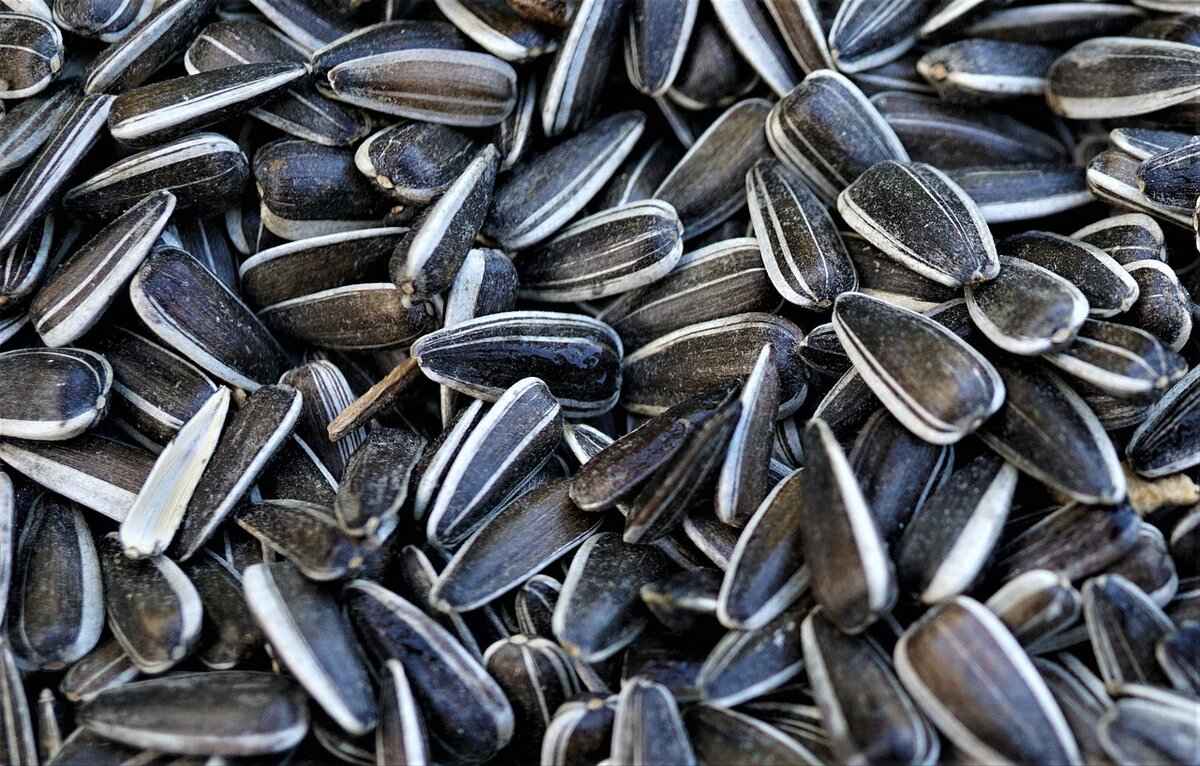
How to Incorporate Chia Seeds into Your Diet?
Chia seeds have gained immense popularity in recent years, and for good reason. These tiny seeds are not only packed with nutrients but also offer a variety of ways to enhance your meals. Incorporating chia seeds into your diet is easy and can significantly boost your health.
Chia seeds are incredibly versatile and can be added to a wide range of dishes. They are rich in omega-3 fatty acids, fiber, and protein, making them a perfect addition to any meal. Their ability to absorb liquid and form a gel-like consistency allows them to be used in various culinary applications.
- Smoothies: Blend chia seeds into your favorite smoothie for an added nutritional boost. They blend well and add a delightful texture.
- Chia Pudding: Mix chia seeds with your choice of milk or yogurt and let them sit overnight. The next morning, you’ll have a creamy, nutritious pudding that can be flavored with fruits and nuts.
- Baked Goods: Incorporate chia seeds into your baking recipes. They can be added to muffins, breads, or pancakes, enhancing both flavor and nutrition.
- Salads: Sprinkle chia seeds on top of salads for a crunchy texture. They complement a variety of dressings and ingredients.
- Energy Bars: Create homemade energy bars by mixing chia seeds with oats, nut butter, and honey. These make for a healthy snack on the go.
Chia seeds not only add nutritional value but also improve the texture of your dishes. When soaked, they expand and create a gel-like substance that can thicken smoothies or dressings. This unique property makes them a popular choice in vegan and gluten-free recipes.
Experts recommend consuming about 1-2 tablespoons of chia seeds daily. This amount provides a sufficient dose of nutrients while fitting easily into most diets. Due to their high fiber content, it’s essential to drink plenty of water when consuming chia seeds to avoid digestive discomfort.
While chia seeds are generally safe for most individuals, it’s important to be mindful of how you incorporate them into your diet. Start with a small amount if you’re new to chia seeds, and gradually increase your intake. This approach allows your digestive system to adjust without discomfort.
Absolutely! Chia seeds can be used in various cooking methods. They can be added to soups, stews, and sauces as a thickening agent. However, it’s best to avoid cooking them at high temperatures, as this may reduce their nutritional benefits.
To enhance the flavor and appeal of chia seeds, consider mixing them with other ingredients. For instance, adding cocoa powder or vanilla extract to chia pudding can create a delicious dessert. Experimenting with different flavors and textures can make chia seeds a delightful addition to your meals.
In summary, chia seeds are a nutritional powerhouse that can easily be incorporated into your diet. With their numerous health benefits and versatile uses, there’s no reason not to enjoy them daily. Start experimenting with these tiny seeds today and discover the many delicious ways they can enhance your meals!
What Are Some Easy Recipes Using Chia Seeds?
Chia seeds are a fantastic addition to your diet, not just for their health benefits but also for their versatility in the kitchen. If you’re looking for easy recipes to incorporate these tiny powerhouses into your meals, you’re in the right place. Here are some simple yet delicious ways to enjoy chia seeds.
Chia pudding is one of the easiest recipes to prepare. To make it, combine 1/4 cup of chia seeds with 1 cup of your favorite milk (dairy or plant-based) in a bowl. Stir well to avoid clumping, and let it sit for about 15 minutes to thicken. For added flavor, mix in honey, vanilla extract, or cocoa powder. You can top it with fresh fruits, nuts, or granola for a nutritious breakfast or snack.
Incorporating chia seeds into smoothies is another effortless way to boost their nutritional value. Simply blend 1 tablespoon of chia seeds with your favorite fruits, leafy greens, and a liquid base like water or almond milk. The seeds will provide a satisfying texture and a dose of fiber. Experiment with combinations like banana, spinach, and almond milk for a refreshing drink.
Making your own energy bars can be a fun project. Combine 1 cup of oats, 1/4 cup of nut butter, 1/4 cup of honey, and 2 tablespoons of chia seeds in a bowl. Mix until well combined, then press the mixture into a lined baking dish. Refrigerate for about 2 hours before cutting into bars. These homemade energy bars are perfect for a quick snack or a pre-workout boost.
Making chia seed jam is a fantastic way to enjoy fruits while keeping added sugars to a minimum. Mash 2 cups of fresh or frozen fruit and mix in 2 tablespoons of chia seeds and 1-2 tablespoons of sweetener (like maple syrup or agave). Let it sit for about 30 minutes until it thickens. Spread this jam on toast, pancakes, or yogurt for a delightful treat.
Add a crunch to your salads by sprinkling 1 tablespoon of chia seeds on top. They not only enhance the texture but also provide extra nutrients. Pair them with a mix of greens, vegetables, and a light dressing for a wholesome meal.
Incorporating chia seeds into your daily meals is not only easy but also beneficial for your health. With these simple recipes, you can enjoy the nutritional advantages of chia seeds while satisfying your taste buds. Whether you opt for a creamy pudding, a refreshing smoothie, or a homemade energy bar, these versatile seeds can fit seamlessly into your diet.
How Much Chia Seeds Should You Consume Daily?
Chia seeds have gained immense popularity in recent years due to their numerous health benefits and versatility in the kitchen. As a small yet powerful superfood, many people wonder about the appropriate amount to include in their daily diet. This article will explore the recommended serving size of chia seeds and how to incorporate them effectively into your meals.
A typical serving size of chia seeds is about 1-2 tablespoons per day. This amount provides a sufficient supply of nutrients without overwhelming your diet. Chia seeds are incredibly nutrient-dense, containing a wealth of omega-3 fatty acids, fiber, and various vitamins and minerals.
Understanding the recommended serving size is crucial for maximizing the health benefits of chia seeds while minimizing any potential digestive discomfort. Consuming too much can lead to gastrointestinal issues, as chia seeds absorb water and expand in the digestive tract. Therefore, sticking to the 1-2 tablespoon guideline helps ensure you receive the benefits without adverse effects.
To accurately measure chia seeds, consider using a kitchen scale or standard measuring spoons. One tablespoon of chia seeds typically weighs around 12 grams. Here’s a quick reference:
| Measurement | Weight (grams) |
|---|---|
| 1 tablespoon | 12 grams |
| 2 tablespoons | 24 grams |
Chia seeds are versatile and can be easily added to various dishes. Here are some practical ways to include them in your meals:
- Smoothies: Blend chia seeds into your favorite smoothie for an added nutritional boost.
- Chia Pudding: Mix chia seeds with milk or a milk alternative and let them sit overnight to create a delicious pudding.
- Salads: Sprinkle chia seeds on top of salads for added crunch and nutrition.
- Baked Goods: Add chia seeds to muffins, bread, or energy bars for enhanced texture and health benefits.
Chia seeds are packed with nutrients. A single serving of 1-2 tablespoons contains:
- Fiber: Approximately 5-10 grams, aiding in digestion and promoting satiety.
- Omega-3 Fatty Acids: About 2,400 mg, supporting heart health.
- Protein: Around 3-4 grams, which is beneficial for muscle repair and growth.
- Minerals: Calcium, magnesium, and phosphorus, essential for bone health.
While chia seeds are generally safe for most individuals, it’s important to consume them with adequate water. Due to their high fiber content, insufficient hydration can lead to digestive discomfort. Additionally, individuals with specific allergies or those taking certain medications should consult a healthcare provider before adding chia seeds to their diet.
In summary, incorporating 1-2 tablespoons of chia seeds into your daily diet can provide numerous health benefits while maintaining digestive comfort. With their versatility and rich nutritional profile, chia seeds can easily become a staple in your meals.

Are There Any Risks or Side Effects of Chia Seeds?
Chia seeds have gained immense popularity for their numerous health benefits, but like any food, they come with potential risks and side effects. Understanding these aspects is crucial for anyone looking to incorporate chia seeds into their diet.
While chia seeds are generally safe for most individuals, some may experience digestive discomfort. This can be attributed to their high fiber content, which, when consumed in excess or without adequate hydration, can lead to bloating, gas, or even constipation. It is essential to consume chia seeds with sufficient water to mitigate these effects. When soaked in liquid, chia seeds expand and form a gel-like consistency, making them easier to digest.
Although chia seeds are nutritious, certain individuals should approach their consumption with caution:
- Individuals with Digestive Disorders: Those suffering from conditions like irritable bowel syndrome (IBS) or inflammatory bowel disease (IBD) may find that chia seeds exacerbate their symptoms due to the high fiber content.
- People with Allergies: While rare, some individuals may be allergic to chia seeds. Symptoms can include itching, hives, or gastrointestinal distress.
- Individuals on Blood Thinners: Chia seeds are high in omega-3 fatty acids, which can have a blood-thinning effect. Those on anticoagulant medications should consult their healthcare provider before adding chia seeds to their diet.
To enjoy the benefits of chia seeds while minimizing potential risks, consider the following tips:
- Start with small amounts, such as 1 teaspoon per day, and gradually increase to a maximum of 1-2 tablespoons as your body adjusts.
- Always soak chia seeds in water or another liquid for at least 30 minutes before consuming to help with digestion.
- Drink plenty of water throughout the day to aid in digestion and prevent any discomfort.
While allergies to chia seeds are uncommon, awareness is essential. Symptoms may manifest as:
- Skin Reactions: Itching or hives can occur in allergic individuals.
- Gastrointestinal Issues: Nausea, vomiting, or abdominal pain may indicate an allergic reaction.
If you suspect an allergy, it is advisable to discontinue use and consult a healthcare professional for proper evaluation and guidance.
Chia seeds can interact with certain medications, particularly those that affect blood sugar levels and blood clotting. If you are taking medications for diabetes or anticoagulants, it is crucial to consult with your healthcare provider before adding chia seeds to your diet. They can help monitor your health and make necessary adjustments to your medication regimen.
In summary, while chia seeds are a nutritious addition to many diets, being aware of potential risks and side effects is vital. By consuming them responsibly and staying informed about your health, you can enjoy the many benefits that these tiny seeds have to offer.
Who Should Avoid Chia Seeds?
Chia seeds are often hailed for their numerous health benefits, but they may not be suitable for everyone. Understanding who should avoid chia seeds is crucial for safe consumption and overall well-being. Below, we explore the potential risks and interactions associated with chia seeds, particularly for those with specific health conditions or dietary restrictions.
Though relatively rare, chia seed allergies can occur. Symptoms may include itching, hives, or gastrointestinal discomfort. If you have a history of allergies to similar seeds such as flaxseed or sesame, it is advisable to approach chia seeds with caution. Consulting a healthcare provider before introducing them into your diet is recommended to ensure safety.
Chia seeds are rich in omega-3 fatty acids, which have natural anticoagulant properties. For individuals taking blood-thinning medications like warfarin or aspirin, consuming chia seeds may increase the risk of bleeding. It is essential to consult your healthcare provider to discuss your diet and any potential interactions with medications.
Chia seeds are high in fiber, which can be beneficial for many; however, for individuals with certain digestive disorders such as irritable bowel syndrome (IBS) or inflammatory bowel disease (IBD), consuming high-fiber foods can exacerbate symptoms. It’s advisable for these individuals to consult a healthcare professional before adding chia seeds to their diet.
While chia seeds can be a nutritious addition to a balanced diet, pregnant and breastfeeding women should exercise caution. The high fiber content may lead to digestive issues if not consumed with adequate hydration. Additionally, it is best to consult a healthcare provider to ensure that chia seeds are suitable during pregnancy or lactation.
Chia seeds can help regulate blood sugar levels and promote heart health; however, they may also lower blood pressure. For individuals already experiencing low blood pressure or those on medications to manage it, chia seeds could potentially exacerbate the condition. Consultation with a healthcare provider is essential to determine if chia seeds are appropriate for your diet.
Chia seeds can absorb a significant amount of water and expand in size. For individuals with swallowing difficulties or esophageal issues, consuming dry chia seeds can pose a choking hazard. It is crucial to soak chia seeds in liquid before consumption to prevent any risks associated with choking.
In summary, while chia seeds are a nutritious addition to many diets, individuals with specific allergies, medical conditions, or those taking certain medications should consult a healthcare provider before incorporating them into their meals. This precaution helps to avoid potential interactions or side effects, ensuring a safe and healthy dietary experience.
For anyone considering adding chia seeds to their diet, it’s vital to assess personal health conditions and consult with a healthcare professional as needed. This approach not only promotes safety but also enhances the overall benefits of including chia seeds in your nutrition plan.
What Should You Know About Chia Seed Allergies?
Chia seeds have gained immense popularity due to their numerous health benefits and nutritional profile. However, it is essential to be aware that, although rare, chia seed allergies can occur in some individuals. Understanding the symptoms and potential reactions is crucial for safe consumption.
What Are the Symptoms of Chia Seed Allergies?
- Itching: One of the most common reactions can be localized or widespread itching, which may occur shortly after consumption.
- Hives: Some individuals may develop hives, which are raised, itchy welts on the skin.
- Gastrointestinal Discomfort: Symptoms such as nausea, vomiting, or abdominal pain may also indicate an allergic reaction.
- Respiratory Issues: In more severe cases, individuals may experience difficulty breathing or wheezing.
Who Is at Risk for Chia Seed Allergies?
Individuals with a history of food allergies are generally at a higher risk for developing new allergies, including those to chia seeds. If you have allergies to other seeds or nuts, it is advisable to approach chia seeds with caution. Additionally, those with a family history of allergies may also be more susceptible.
How Can You Confirm a Chia Seed Allergy?
If you suspect you have a chia seed allergy, it is crucial to seek advice from a healthcare professional. They may recommend an allergy test, such as a skin prick test or a blood test, to confirm the allergy. Keeping a food diary can also help identify any patterns related to chia seed consumption and allergic reactions.
What Should You Do If You Experience Symptoms?
If you notice any allergic symptoms after consuming chia seeds, it is important to immediately stop eating them. In mild cases, over-the-counter antihistamines may alleviate symptoms like itching or hives. However, if you experience more severe reactions, such as difficulty breathing, seek emergency medical attention right away.
How to Safely Incorporate Chia Seeds into Your Diet?
For those without allergies, chia seeds can be a fantastic addition to your diet. However, it is essential to introduce them gradually. Start with small amounts and monitor your body’s response. Always ensure you consume chia seeds with plenty of water to aid digestion and prevent any gastrointestinal discomfort.
Are There Alternatives to Chia Seeds?
If you have a chia seed allergy, there are several alternatives that can provide similar health benefits:
- Flaxseeds: Rich in omega-3 fatty acids and fiber, flaxseeds can be a great substitute.
- Hemp Seeds: These seeds are also nutrient-dense and can be used in various recipes.
- Sunflower Seeds: Another excellent option for snacking or adding to dishes, sunflower seeds are versatile and nutritious.
In conclusion, while chia seeds offer numerous health benefits, it is essential to be aware of the potential for allergies. Understanding the symptoms, risks, and alternatives can help ensure safe consumption and allow you to enjoy the nutritional advantages of these seeds without adverse effects.
Frequently Asked Questions
- What are the main health benefits of chia seeds?
Chia seeds are packed with omega-3 fatty acids, fiber, and antioxidants, making them fantastic for heart health, digestive health, and weight management. They help reduce inflammation and can stabilize blood sugar levels.
- How can I incorporate chia seeds into my meals?
You can easily add chia seeds to smoothies, yogurt, oatmeal, or baked goods. They can also be used to make delicious chia pudding or energy bars, offering a versatile way to enjoy their benefits.
- Is there a recommended daily intake of chia seeds?
A typical serving size is about 1-2 tablespoons per day. This amount provides a healthy dose of nutrients without overwhelming your diet.
- Are there any risks associated with eating chia seeds?
While generally safe, some individuals may experience digestive discomfort if consumed without enough water. It’s best to drink plenty of fluids when adding chia seeds to your diet.
- Who should avoid chia seeds?
People with specific allergies or those on certain medications should consult their healthcare provider before incorporating chia seeds into their diet to avoid potential interactions.

